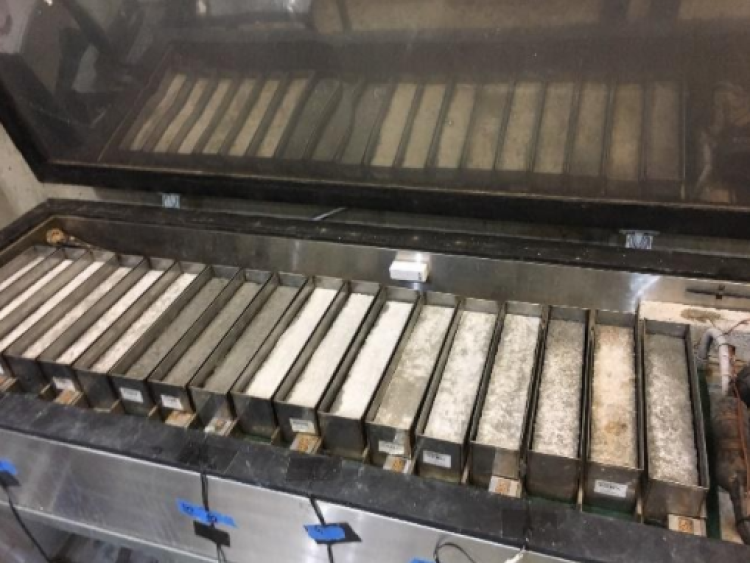Full Title:
Year: 2017-21
Participants: Mohammad Matar, Shane Frazier, Jorge Osio-Norgaard, Anastasia Aday, Nathan Deanda, El Delesky
Primary Investigator: Wil Srubar III
Summary: In this study the effects of biomimetic antifreeze polymers were investigated for their use as an alternative to traditional air entraining agents in concrete exposed to freeze-thaw conditions in accordance with ASTM C666. Compression testing according to ASTM C39 was conducted to examine the changes in strength of polymer-modified concrete as compared to concrete containing a commercial air entraining agent. Various molecular weights and concentrations were explored in concrete samples containing polymer modifications. Results indicate that biomimetic antifreeze polymers do not significantly affect the compressive strength of concrete and may provide an alternative to traditional air entraining agents at lower concentrations than their air entraining admixture counterparts.





Specimens with entrained air after freezing and thawing

Test specimen undergoing compression test

Specimens with biomimetic antifreeze polymer after freezing and thawing
